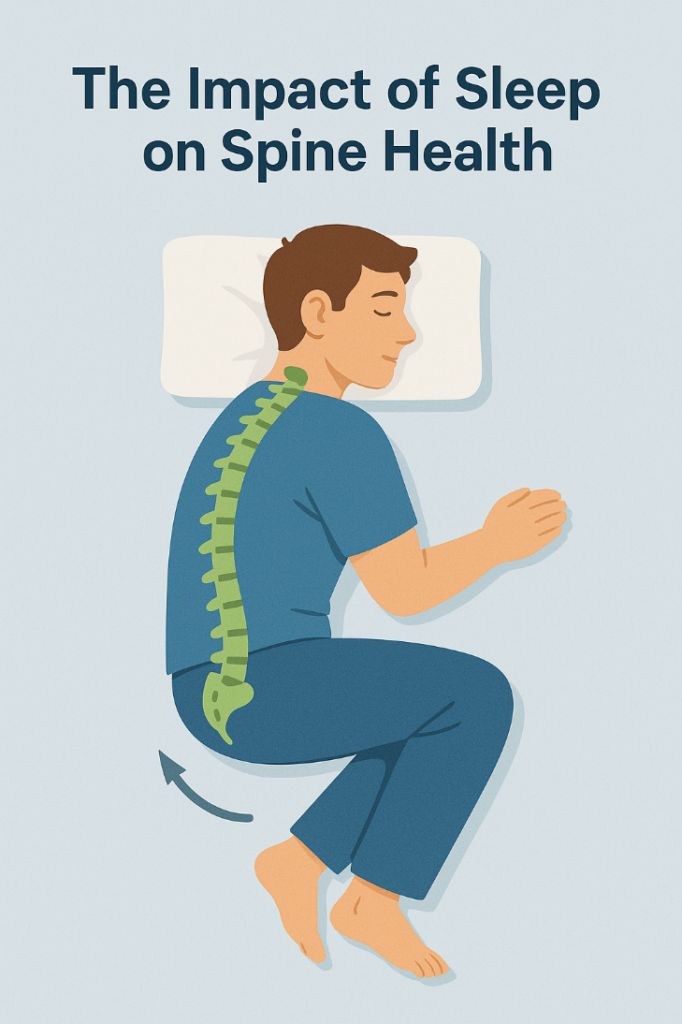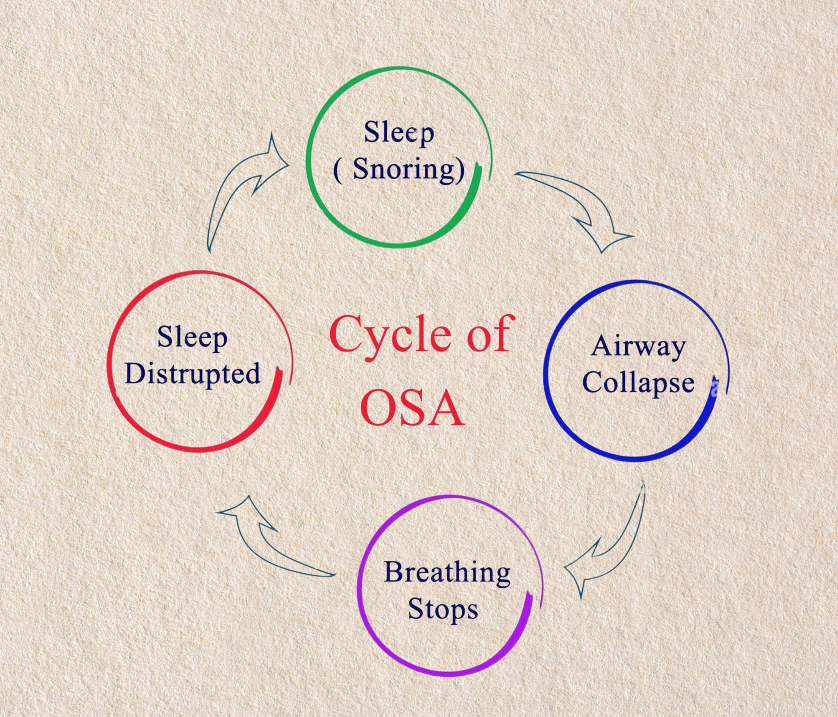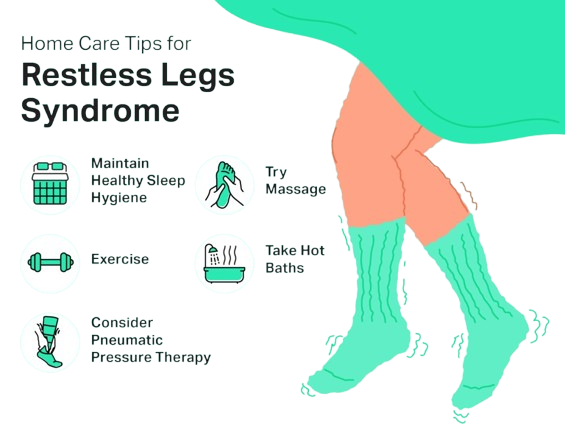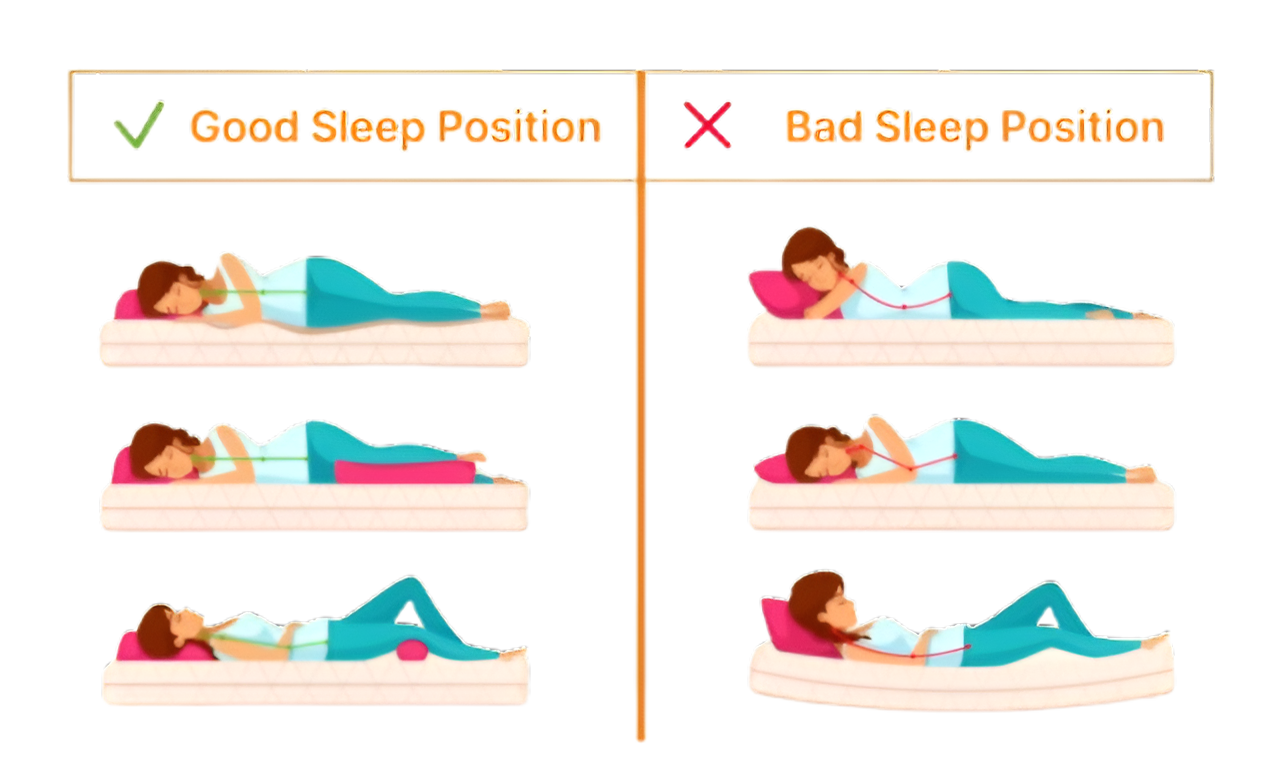Sleep plays a vital yet often overlooked role in maintaining spinal health. Beyond relieving fatigue, quality sleep enables essential physiological processes that directly affect the spine’s structure, function, and resilience. From disc recovery to muscle repair and pain regulation, the body uses sleep as a time to restore and protect the spinal system.
Importance of Sleep:
Sleep is not just a passive state of rest—it’s an active process during which the body undergoes critical healing and maintenance. The spine, being central to movement and neurological function, heavily depends on quality sleep to stay healthy and resilient.
1) Spinal Disc Rehydration and Recovery:
Intervertebral discs act as shock absorbers between vertebrae. During daily activities, these discs lose fluid and become compressed due to gravity and body movements.
At night, when the spine is offloaded and the body is in a horizontal position, these discs reabsorb fluid and nutrients, helping to restore their normal height and function.
Without sufficient deep sleep, this rehydration process is incomplete, leading to:
- Disc degeneration
- Increased stiffness
- Reduced shock absorption
- Heightened risk of herniation
2) Muscle Repair and Spinal Support:
Muscles surrounding the spine—including the core, paraspinal muscles, and deep stabilizers—support spinal alignment and movement. During sleep, especially during non-REM (NREM) deep sleep, the body releases growth hormone, which aids in:
- Muscle repair
- Collagen synthesis
- Healing of minor injuries to ligaments and tendons
If sleep is interrupted or insufficient, the muscles may not recover fully, resulting in:
- Chronic muscular fatigue
- Imbalance between stabilizing and mobilizing muscles
- Poor posture and mechanical stress on the spine
3) Neurological Rest and Pain Modulation:
The spinal cord is a vital part of the central nervous system. Sleep is necessary for optimal neural functioning and the regulation of pain perception.
Research shows that poor sleep increases pain sensitivity and lowers the threshold for back or neck pain. In chronic pain conditions like sciatica or lumbar disc disease, lack of sleep worsens both pain severity and frequency.
4) Hormonal Balance and Inflammation:
Sleep influences the release of inflammatory cytokines and stress hormones such as cortisol. Sleep deprivation can lead to:
- Elevated cortisol levels
- Systemic inflammation
- Delayed tissue healing
These effects collectively contribute to chronic back pain, especially in individuals with existing spinal issues such as arthritis or spinal stenosis.
How Sleep Disorders Affect Spinal Health:
Sleep disorders disrupt the natural healing cycles of the body and are increasingly linked with spinal dysfunction and chronic pain.
1) Insomnia:
Insomnia reduces the time spent in restorative stages of sleep (especially deep NREM sleep). As a result:
- Muscles and discs do not recover adequately
- Pain perception is heightened
- Stress levels increase, tightening muscles around the spine
- Long-term insomnia can contribute to a cycle of pain, poor sleep, and disability.
2) Obstructive Sleep Apnea (OSA):
OSA causes repeated interruptions in breathing during sleep, leading to fragmented sleep and low oxygen levels. This condition:
- Increases systemic inflammation
- Interferes with muscle relaxation and repair
- May contribute to morning stiffness, neck pain, and fatigue
- Some patients with sleep apnea report chronic upper back and neck discomfort, often due to prolonged poor sleeping posture and muscle tension.
3) Restless Leg Syndrome (RLS) and Periodic Limb Movement Disorder (PLMD):
These disorders cause involuntary movements during sleep, leading to disrupted rest and poor spinal alignment. Over time, this can strain the lumbar spine and result in:
- Lower back pain
- Sciatic nerve irritation
- Muscle imbalance
4) Circadian Rhythm Disorders:
Disruptions in the body’s natural sleep-wake cycle (e.g., due to shift work or jet lag) affect the timing of hormone release and tissue regeneration. This may:
- Delay musculoskeletal healing
- Increase fatigue-related poor posture
- Contribute to cumulative spinal stress
Practical Tips to Support Spinal Health Through Sleep:
- Choose the Right Mattress – A medium-firm mattress provides adequate support to maintain spinal alignment.
- Use an Ergonomic Pillow – Ensure your neck is supported in a neutral position, especially if you sleep on your side or back.
- Maintain Sleep Hygiene – Go to bed and wake up at consistent times; avoid screens, caffeine, and heavy meals before bed.
- Stretch Before Sleep – Gentle stretching or yoga can help relax back muscles and improve spinal posture during sleep.
- Treat Underlying Sleep Disorders – Consult a sleep specialist if you have signs of insomnia, apnea, or other disruptions.
Conclusion:
Sleep is a cornerstone of spinal health. It allows the spine to recover, rebuild, and realign after daily stress. Sleep disorders—whether due to poor habits or medical conditions—can compromise this recovery process, leading to chronic spinal pain, disc problems, and muscular imbalances. Prioritizing quality sleep is therefore essential for both the prevention and management of spinal issues.
About Authors
Dr. Muhammad Mahmood Ahmad is a Spinal as well as an Orthopedic Surgeon with over 14 years of experience currently practicing at Razia Saeed Hospital, Multan.









